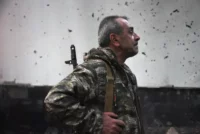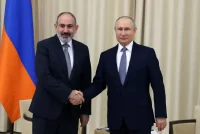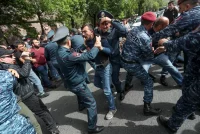
Russia, drawn deeper into Ukraine, loses grip on conflict on its periphery
As Russia moves deeper into the Ukraine quagmire, the Kremlin is losing its military and diplomatic ability to mediate the long-running conflict between Armenia and Azerbaijan — and the Biden administration is moving to fill that void.
National security adviser Jake Sullivan this week hosted what he called “direct and constructive talks” with Armen Grigoryan and Hikmet Hajiyev, his counterparts from Armenia and Azerbaijan, respectively. The meeting followed on-the-ground mediation efforts by Philip Reeker, the State Department’s senior adviser for the Caucasus region.
The White House meeting produced a “road map” for further peace negotiations between the two countries, according to Lilit Makunts, Armenia’s ambassador to Washington.… Seguir leyendo »

















